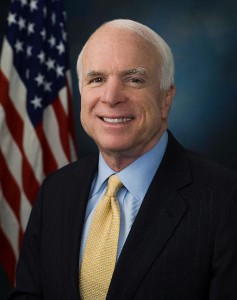Legislation to prevent a government shutdown is headed to President Barack Obama’s desk after the House and Senate this week cleared the must-pass measure. According to reports from Bloomberg, the White House said the president will sign the continuing resolution (CR) quickly, well before the end of the government’s fiscal year on September 30. Enactment of the CR will ensure federal funds continue to flow at current rates through Dec. 11.
The CR (H. J. Res. 124) was approved September 18 by the Senate on a 78-22 vote after an afternoon debate that largely mirrored one that occurred in the House the previous day. As expected, appropriators’ plan to simply extend most federal funds at current levels to ensure no shutdown was overshadowed by a discussion on whether to give the president authority to use some of the funds to combat the threat posed by the Islamic State.
The Senate’s action was one of the last it planned to take before wrapping up September’s work and leaving for the campaign trail. Majority Leader Harry Reid (D-NV) and Senate Appropriations Committee Chairwoman Barbara Mikulski (D-MD) both said the next seven weeks will be used to craft a 12-bill omnibus appropriations package that will provide the balance of funds for the new fiscal year that begins Oct. 1. “It allows us also to lay the groundwork for an omnibus funding bill in December which would be a comprehensive funding bill, including all 12 appropriations,” Mikulski said in the Bloomberg article. “Also, it gives the President the fiscal resources to protect the nation, to deal with ISIL [the Islamic State], to make sure we support the needs of the Ukraine and NATO, and also to work on a global basis to stamp out Ebola.”
Senate Appropriations Committee Ranking Member Richard Shelby (R-AL) said, “During the break, and when we return in November, Chairwoman Mikulski and I will be working closely on an omnibus bill to put in place funding for the remainder of the fiscal year. It is my hope that we will be able to once again reach an agreement and complete the work of the committee before this Congress adjourns. I believe that this is an achievable goal as long as both sides come to the table with reasonable expectations. We have done it before and I expect that we can do it again.”
Former Senate Armed Services Committee Ranking Member Sen. John McCain (R-AZ) said the inclusion of the Syrian language caused him to reconsider plans to vote against the CR. He said he does not approve of the bulk of the CR and the “broken, dysfunctional process” that marks appropriations work. “This CR I’m voting for for one particular reason, it would help the Department of Defense train and equip moderate vetted Syrian opposition forces to fight the barbaric army that calls itself the Islamic State.”
McCain said he will vote for the CR even though he said he has concerns that the administration’s plan is inadequate to address the threat posed by the Islamic State. But he and other lawmakers said they expect to revisit the matter during the lame-duck session, with the most likely vehicle for that debate to be the annual Department of Defense authorization bill. “Americans—whether today’s taxpayers or tomorrow’s—should not be sold a disproportionate burden of the cost,” said Appropriations Committee Member Jon Tester (D-MT). “After all, if countries like Saudi Arabia or Turkey feel the growth of ISIL, they should make real commitments to this war-fighting effort.”
Both chambers of Congress are due back on November 12.



